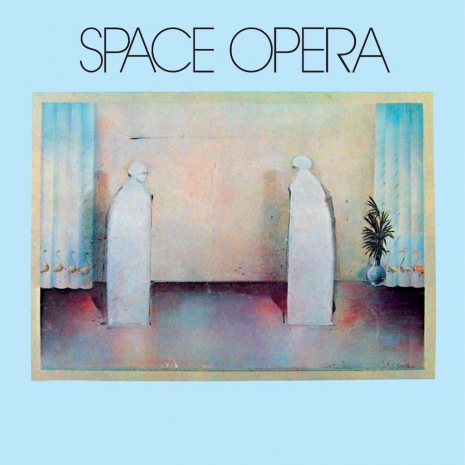
I recently heard the song “Holy River” by ‘70s group Space Opera and was blown away. Space Opera are a little-known act. Widely believed to be from Canada, the four-piece group actually hailed from Fort Worth, Texas. Signed to a major label, they released just one LP, which quickly faded from view. Stories of missed opportunities are all too common in rock ‘n’ roll, but Space Opera’s tale is particularly lamentable—‘cause there’s magic in them grooves.
The story of Space Opera really begins with Scott Fraser’s teen band, the Mods. The group got started in 1965, and became a popular local act, but by 1968 they were on their last legs. At this time, David Bullock and Philip White entered the picture, and the three talked about forming a new group. But first, they all took part in a studio project—with a young T-Bone Burnett behind the board—that became the album, The Unwritten Works of Geoffrey, Etc.. Pseudonymously credited to Whistler, Chaucer, Detroit, and Greenhill, the 1968 LP was barely promoted by the label, UNI Records, before sinking without a trace.
Undeterred, Fraser (guitar, vocals), Bullock (guitar, vocals), and White (bass, vocals) continued on, playing shows anonymously with various drummers. In the spring of ’69, they were introduced to Brett Wilson, a jazz drummer, who was also from Fort Worth. They had actually all went to high school together, but Wilson was from a different crowd. Soon, they were performing their first show as Space Opera.
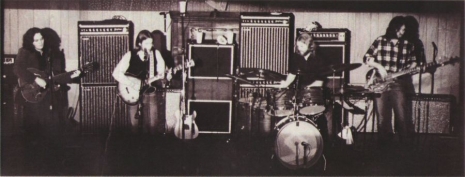
The group quickly established a fan base in their hometown, playing frequently at a popular bar, as well as larger venues opening for big name acts that came through Fort Worth, including Jefferson Airplane and the Byrds—one of their biggest influences. Space Opera recorded some demos, and had some label interest, but nothing was happening. Their break came when a Canadian agent saw the play live. This set off a chain of events, culminating with the band signing a deal with the Canadian arm of Columbia Records, in which they were given total artistic control—an essentially unheard-of agreement, at the time, for a new group.
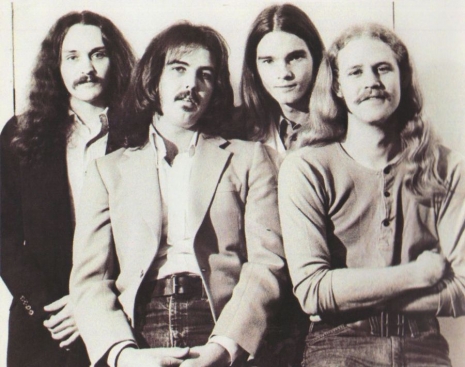
In the spring of 1972, Space Opera moved to Toronto to record their debut album. They played live in the studio, but then overdubbed heavily, saturating the tape with sound. Striving towards perfection, they spent a lot of time on it, which made Columbia nervous. When they finally finished recording in July, they returned to Texas, with the assumption that the label had a plan for them—but they didn’t. Disappointed with the lengths it took to make, mix, and then create the artwork for the album, Columbia was losing interest. Making matters worse, in order to duplicate their studio recordings, Space Opera ordered new, custom equipment, but the gear took a loooong time to arrive, breaking their momentum.
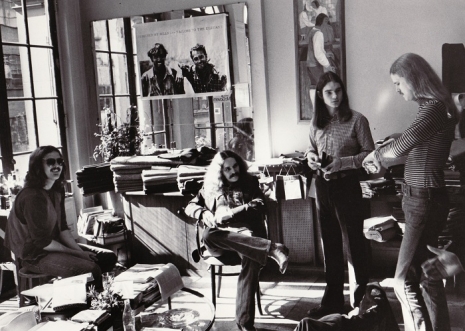
Space Opera was formally released on March 21, 1973 (It came out on Epic Records in the U.S). The wait on the new equipment continued, though, and by the time it finally arrived two months later, the group was all but finished. After just a handful of shows to promote their debut LP—an album that showed so much promise—Space Opera called it a day.
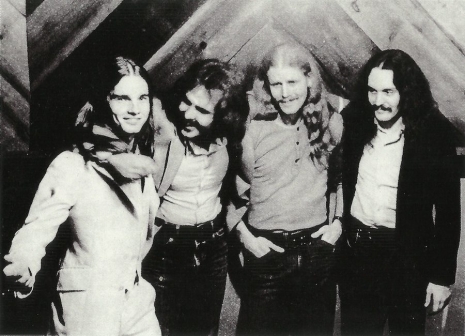
Blending country, folk, psych, prog, and pop to great effect, Space Opera is a fantastic rock record that, in a perfect world, would have been a huge hit. The songs are solidly sung and played, with gorgeous harmonies and guitar solos that are positively euphoric. For my money, “Holy River” and album closer “Over and Over” are the best examples of Space Opera’s wizardry.
A couple of years after they broke up, Space Opera gave it another go, but went their separate ways again before decade’s end. The four were never far apart for long, though, and would still get together to jam, on occasion. They formally revived the band in 1995, and issued a disc of new material in 2001. Brett Wilson died suddenly in 2005. The surviving members played one final time—at Wilson’s funeral. Scott Fraser passed the following year. Two years later, Philip White was gone. Intended by David Bullock as the last word on Space Opera, a collection of unreleased outtakes from the ‘70s, Safe at Home, was released in 2010.
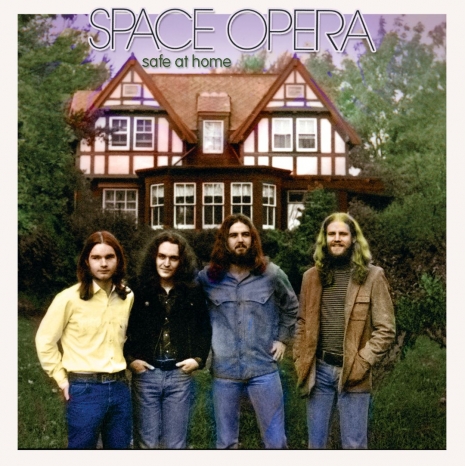
Space Opera’s 1973 LP came out on CD in 2004, but like the rest of the group’s album discography, it’s currently out of print. Their stunning debut has never been reissued on vinyl.
Space Opera came to my attention thanks to the inclusion of “Holy River” on the new compilation of obscure ‘70s pop/rock jams, Sad About the Times.
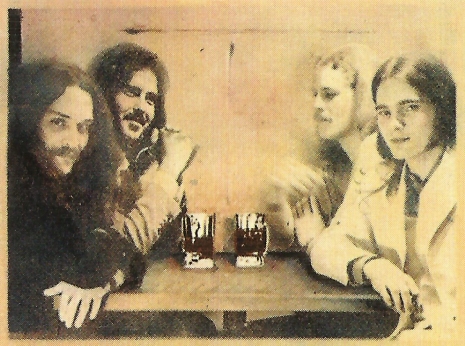
A stream of the full 1973 Space Opera album is below. It kicks off with the song that was the only single culled from the record, the catchy “Country Max.”